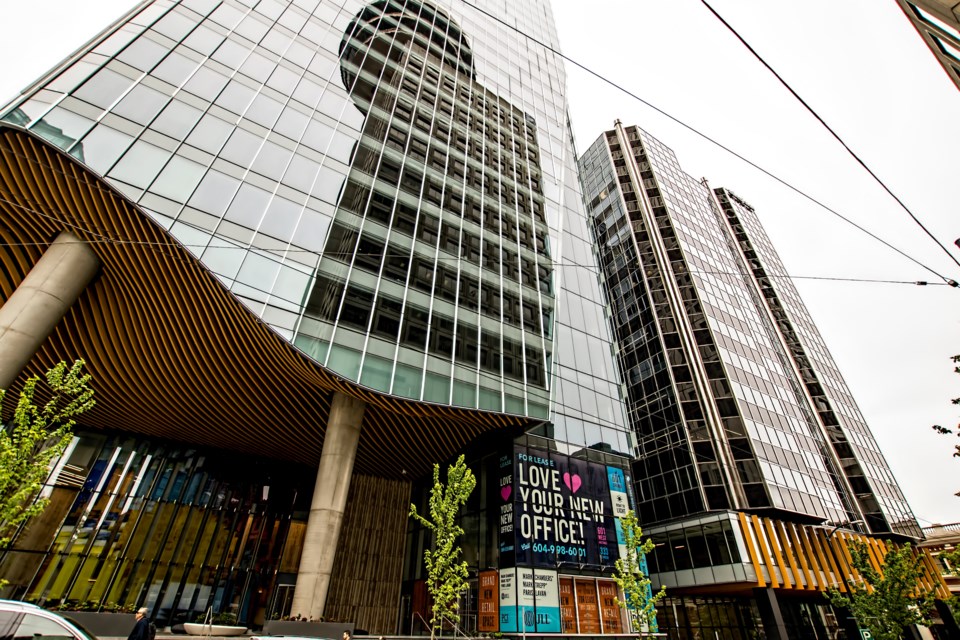Downtown office vacancy reached 8 per cent as of mid-year 2022, up one full percentage point compared with the first six months of 2021, according to a new report from Avison Young (Canada) Inc.
But the real estate firm notes this trend is unfolding “due to significant amounts of new supply” being delivered to the market.
Nearly 570,00 square feet additional AAA space was made available by the end of 2021 and has been “steadily absorbed” into the market, the report said.
Most notably, this has come via the openings of such towers as the Deloitte Summit on West Hastings Street and Bentall 4 on the corner of Dunsmuir and Burrard Streets.
“While there are still elevated levels of vacancy relative to pre-pandemic levels, the market is starting to stabilize,” the report stated, acknowledging that the hybrid model of work has reshaped demand for office space.
“Further increases in vacancy are likely but will be more attributable to delivery of new buildings on a vacant or largely vacant basis, rather than COVID-19.”
The biggest acquirers so far this year appear to be tech giant Microsoft Corp. and Vancouver-based fashion giant Lululemon Athletica Inc.
Avison Young said Microsoft has inked a deal for 65,000 square feet at 989 Granville St. and is “widely rumoured” to have acquired 405,000 square feet of space at the B6 building, which is expected to complete construction during the fourth quarter of next year. The two deals would mean the tech giant has secured 468,000 square feet during the first half of this year alone.
Lululemon is the only company that might come close to keeping pace with Microsoft’s expansion, nabbing 130,000 square feet at Burrard Place and 107,000 square feet at 1380 Burrard St. for a total of 237,000 square feet leased so far this year.
This comes even as Lululemon has plans to open a new headquarters totalling nearly 600,000 square feet in the False Creek Flats area just outside downtown.
Despite office space becoming more abundant in recent months throughout downtown Vancouver, vacancy rates across the Metro Vancouver region shrunk from 8.4 per cent to 7.8 per cent when comparing the first six months of 2021 and 2022, respectively.



